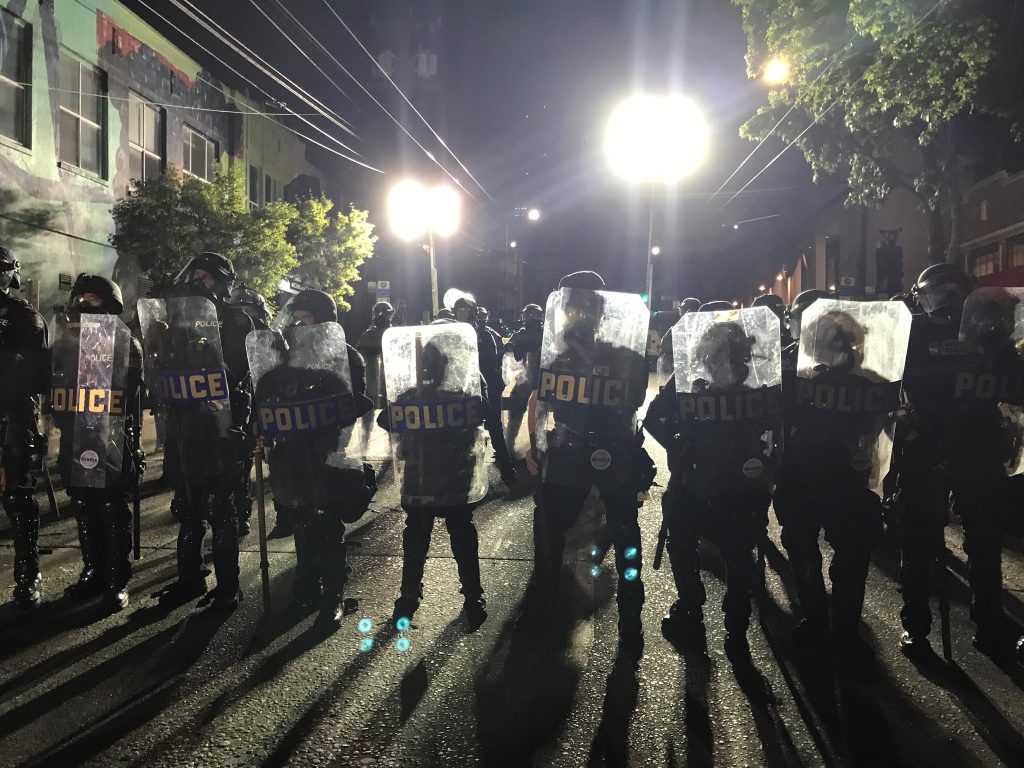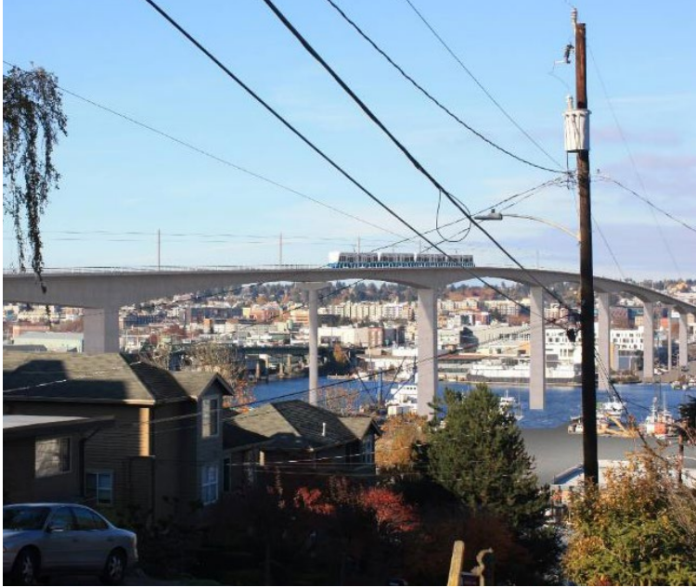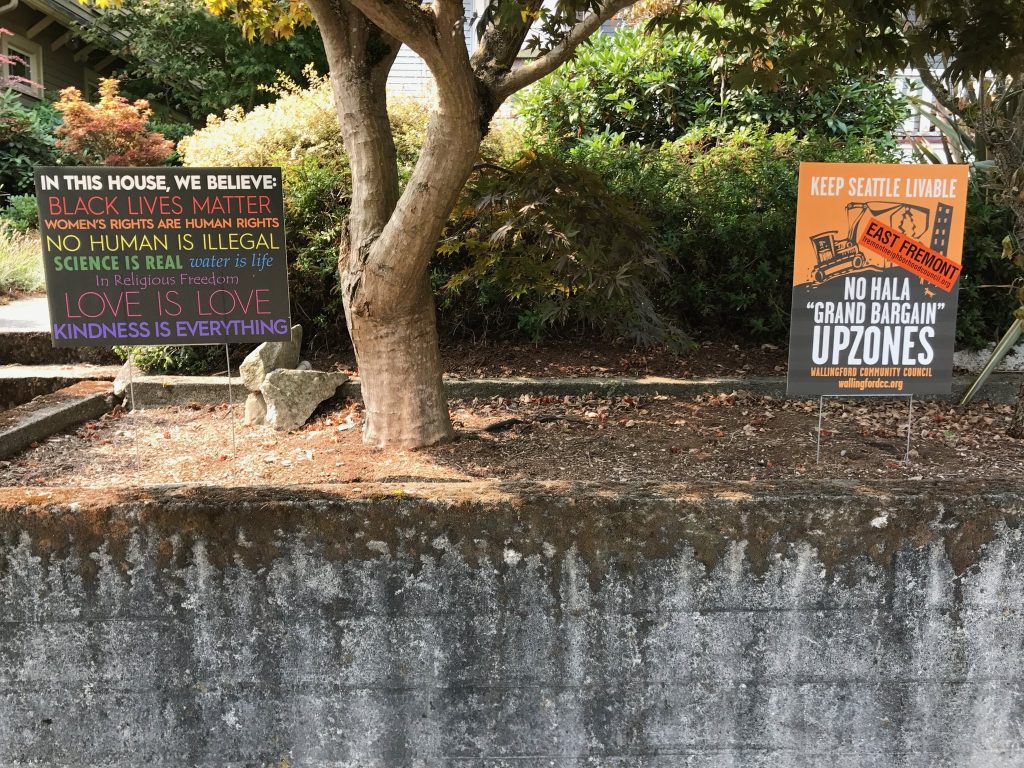For the last five months, a double-digit percentage of my time was spent working through two of Seattle’s larger Draft Environmental Impact Statements (EIS). In early March, I submitted comments on the Industrial and Maritime Strategy Draft EIS. Yesterday, I submitted comments for the West Seattle Ballard Link Extension Draft EIS. It’s like the end of a semester, and exams are finally done.
Besides the time it took to write out my comments, there were hours reading the documents, digging for more information, comparing the plans to what’s on the ground, and joining a whole array of advocates in writing, educating, and reaching out to folks around town suggesting they should say something too. I stand by my insightful and correct points advocating station location and routes to Sound Transit. But the most important thing I said came from describing my exasperation trying to extract anything useful from the indigestible slug of bureaucratic gobbledygook. I ended up telling Sound Transit: “It should not have been this hard.”
Their 2,300 page doorstop of a document is indecipherable, and I literally have advanced degrees in this stuff. We here at The Urbanist spent weeks making sense of it, going over ways to make it easier to understand, sharing that with you, and trying to help fulfill Sound Transit’s legal duty to develop a competent EIS. Other groups from Chinatown to Seattle Subway to KEXP were doing the same to represent their interests and concerns. Thousands of hours went into begging Sound Transit, “PLEASE DON’T SCREW THIS UP.” It should not have been this hard.
But as rolling impediments to participation go, Sound Transit is not the only one, and Environmental Impact Statements are not the only implements. There are dozens of committees and hundreds of meetings and thousands of documents that stand in the way of regular people having any say in the way we live. In the City, there are the thirty separate neighborhood plans, all dating from the 1990s, that slash the city into navel gazing fiefdoms. There’s 39 separate municipalities in just King County that repeat every single thing that happens in Seattle, just smaller and a decade later. Each requires supplication to take any action, and will veto ideas that don’t do so. It should not have been this hard.
Cutting across those jurisdictions are innumerable port authorities, development authorities, regional councils, transit organizations, and endless structure with internal bureaucracy, regular meetings, and reams of output. Each of those organizations is a lobbying group preventing solutions that looks askance their domain. They are buggy whip manufacturers deciding on the location of Tesla salesrooms. And they have the ear of electeds, who run at the sight of light opposition. It should not have been this hard.
This sounds bleak. It sounds fatalist and apocalyptic. That’s the air in the room. It feels like Seattle’s boom and bust cycle is turning, and the bust has cheerleaders. Maybe it’s broader, expanding to the country or the globe. It means the forces of generational inertia get to win, just by saying “not yet” for long enough. Not even bold enough for a solid denial, just delay with enough room for sanctimony. They get to keep their expansive lawns while complaining about tents in the park. They get to cruise on broad car sewers, repaved by insignificant bike lanes. They get to slam the door behind them, while putting up a trite “In this house we believe…” sign. They get to die off comfortably, just as the world they set on fire is irrevocably consumed. Losing to these forces should not have been this hard.
There’s a theory in evolutionary biology called punctuated equilibrium. Instead of species changing at a gradual constant rate over time, there are long periods of stasis followed by bursts of rapid evolution. What causes the stasis and the bursts is up for debate, as is the whole theory, frankly. And rapid is on a geologic time scale.
The idea is worth mentioning because we live in an era and area of dramatic, punctuated leaps. They’re not always good, like Amazon’s move from cheap textbooks to oligarchy or Facebook going from rating the hotness of college women to undermining democracy. But that’s how things work today. And all of the forces that are relying on the power of “no” to protect their position are going to have a sudden and fantastic Come to Jesus moment very shortly. Hard, in our era, is destined to be very short lived.
What’s about to happen is that refrain “not yet” will be said one too many times. It will probably be something small, almost insignificant. The forces of generational inertia will have forgotten how many people they said it to, over how many years, about what things. The forces of inertia thought they said “not yet” about changing the aesthetics of a grocery store to a mixed use urban built form. Something minor. Brick color.
They will not know the multitudes of people who heard that phrase in a completely different way. The forces of inertia said “not yet” to somebody’s home. “Not yet” to a livable job. “Not yet” to getting a future started. “Not yet” to a reasonable commute. “Not yet” to stepping into a new neighborhood. “Not yet” to security, and comfort, and hope.
I want to say that, in a single moment, it will be one too many. That there will be a quiet but firm “Yes, now.” And that voice will be joined, fast and immediately by multitudes. Change will become inevitable. Many hands make light work and the burden of change switches to stopping justice from rolling down the hill.

But we know how that ends. Yes, now we will see the structural impediments to change. They’ll snap shut like bear traps to protect the little fortresses. Yes, now tear gas. And here come their contacts in the evening news to carry lies out like an hors d’oeuvres platter. It’s really a hell of a thing when something hopeful sounds infinitely more disastrous than the just straight up bleak stuff.
Instead, I’ll say this. Inertia is not creative. It is the absence of change meaning there’s literally only two options: at rest or moving in a straight line. Any change to those two options means the other forces are at work and inertia has lost. It means we can be creative, joyous, and hopeful and even the lightest adjustment means we win. We can pull our city towards those values, and the only way the forces of inertia can compete is by emphasizing how dull, stoic, and hopeless they are.
It shouldn’t have been this hard, or gotten to this point. Particularly not for a damn train that’s been ready to go how many times now. There is no grand hero’s journey about correcting societal wounds in opposition to systemic generational hoarding. I’m exhausted, tired of thinking about it all, and just want to coast. But that’s inertia, and that’s boring and not how we work. It shouldn’t be this hard, but I’ll be back at it again tomorrow.
Ray Dubicki is a stay-at-home dad and parent-on-call for taking care of general school and neighborhood tasks around Ballard. This lets him see how urbanism works (or doesn’t) during the hours most people are locked in their office. He is an attorney and urbanist by training, with soup-to-nuts planning experience from code enforcement to university development to writing zoning ordinances. He enjoys using PowerPoint, but only because it’s no longer a weekly obligation.




